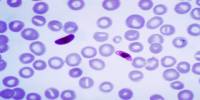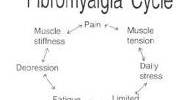The health of our approximately 30 trillion cells of which the immune system is one of the most important depends on how well they cooperate with one another and support one another. The proper operation of our immune system begins to diminish as we get older, which is one of its distinguishing features.
A small group of people known as centenarians exhibit delays in aging-related illnesses and mortality, suggesting that their immune systems continue to function well into old life.
Led by researchers from Boston University Chobanian & Avedisian School of Medicine and Tufts Medical Center, a new study finds centenarians harbor distinct immune cell type composition and activity and possess highly functional immune systems that have successfully adapted to a history of sickness allowing for exceptional longevity. These immune cells might discover crucial treatments for ailments and lengthen life.
“Our data support the hypothesis that centenarians have protective factors that enable to recover from disease and reach extreme old ages,” said lead author Tanya Karagiannis, PhD, senior bioinformatician, Center for Quantitative Methods and Data Science, Institute for Clinical Research and Health Policy Studies at Tufts Medical Center.
“We assembled and analyzed what is, to our knowledge, the largest single-cell dataset of centenarian subjects that allowed us to define unique features of this population that support the identification of molecular and lifestyle factors contributing to their longevity,” explained senior author Stefano Monti, PhD, associate professor of medicine at the School of Medicine.
Centenarians, and their exceptional longevity, provide a ‘blueprint’ for how we might live more productive, healthful lives. We hope to continue to learn everything we can about resilience against disease and the extension of one’s health span.
George J. Murphy
Single cell sequencing was done on peripheral blood mononuclear cells (PBMCs), a large category of immune cells circulating in the blood taken from seven centenarians enrolled in the New England Centenarian Study, one of the largest studies of long-lived people in North America directed by Thomas Perls, MD, at the School of Medicine, to identify immune-specific patterns of aging and extreme human longevity.
They then integrated this dataset with two publicly available single?cell RNA sequencing (scRNA-seq) datasets of PBMCs to investigate compositional and transcriptional changes in circulating immune profiles across the human lifespan and extreme old age.
Finally, they used cutting-edge computational techniques to analyze the combined data, determine whether centenarians exhibit profiles capturing or escaping the expected age progression, and assess how the cell type composition (the proportion of different cell types) and activity change with age.
Their analysis supports findings from earlier research on aging and identifies novel compositional and transcriptional alterations that are exclusive to centenarians and signal a healthy immune response.
The immune system can adapt when people are exposed to illnesses and recover from them, but as we age, our immune systems’ capacity to do so decreases.
“The immune profiles that we observed in the centenarians confirms a long history of exposure to infections and capacity to recover from them and provide support to the hypothesis that centenarians are enriched for protective factors that increase their ability to recover from infections,” said senior author Paola Sebastiani, PhD, director, Center for Quantitative Methods and Data Science, Institute for Clinical Research and Health Policy Studies at Tufts Medical Center.
These results, in the opinion of the researchers, lay a solid platform for further study into immune resilience systems that may be responsible for extreme lifespan and serve as a target for healthy aging treatments.
“Centenarians, and their exceptional longevity, provide a ‘blueprint’ for how we might live more productive, healthful lives. We hope to continue to learn everything we can about resilience against disease and the extension of one’s health span,” said senior author George J. Murphy, PhD, associate professor of medicine at the School of Medicine. These findings appear online in the journal Lancet eBiomedicine.
















